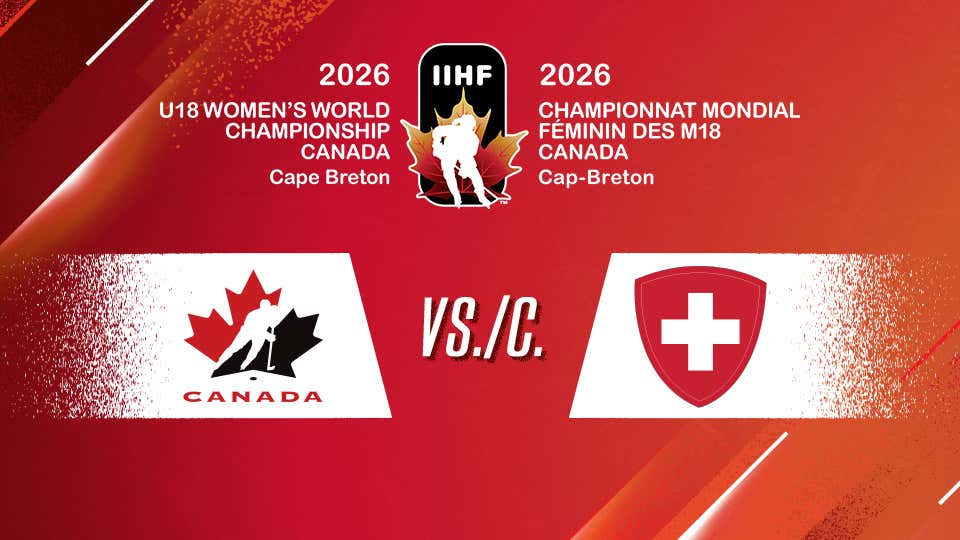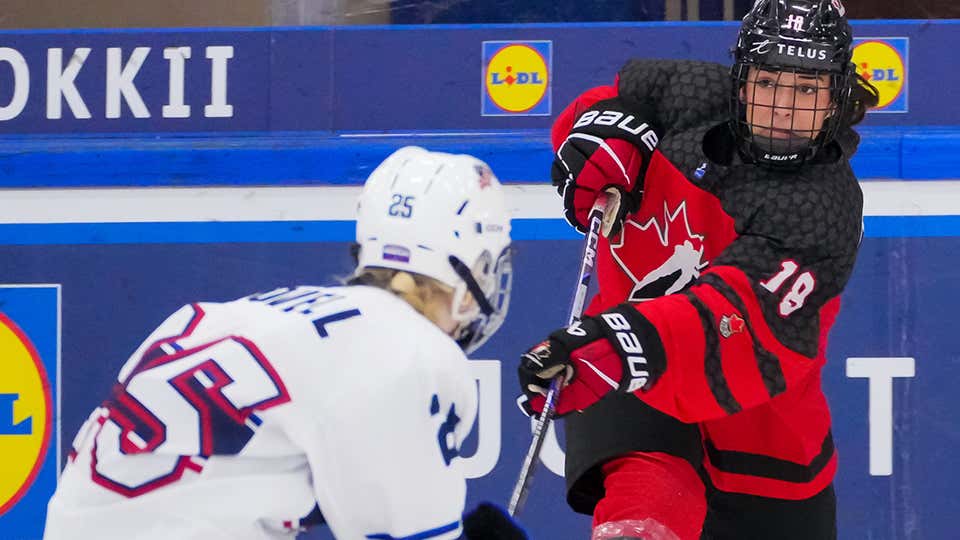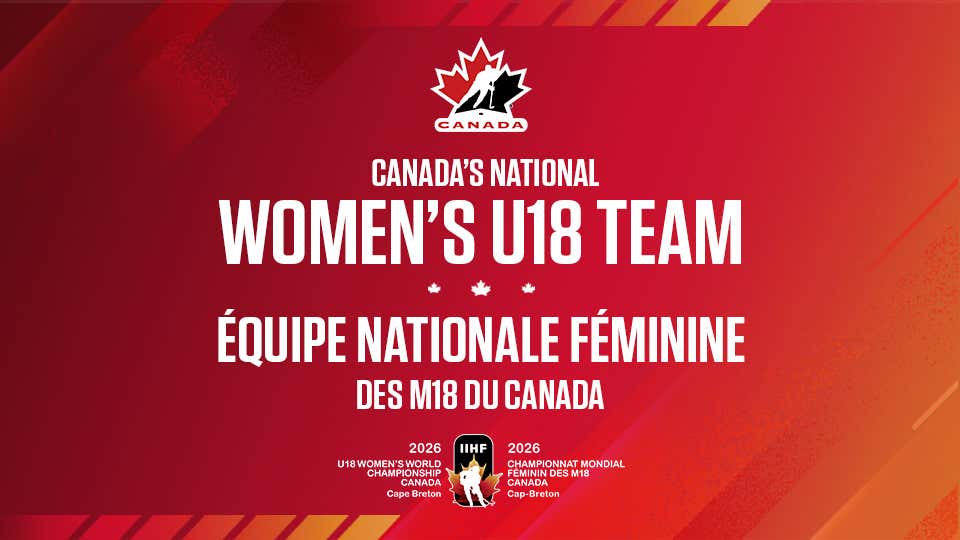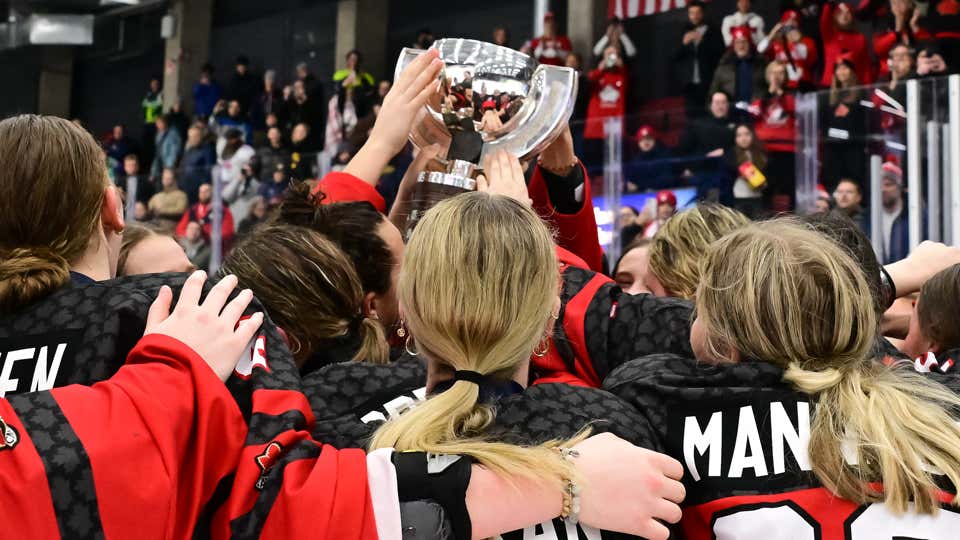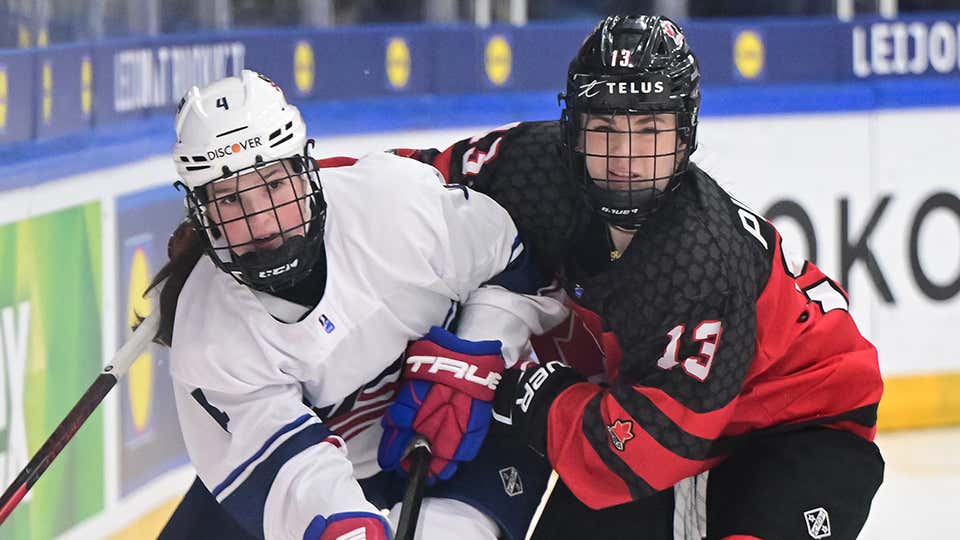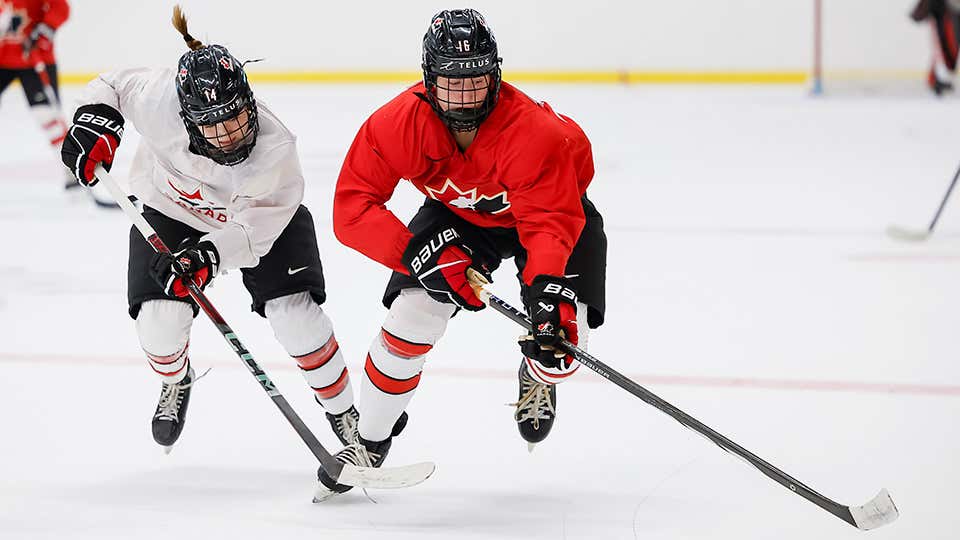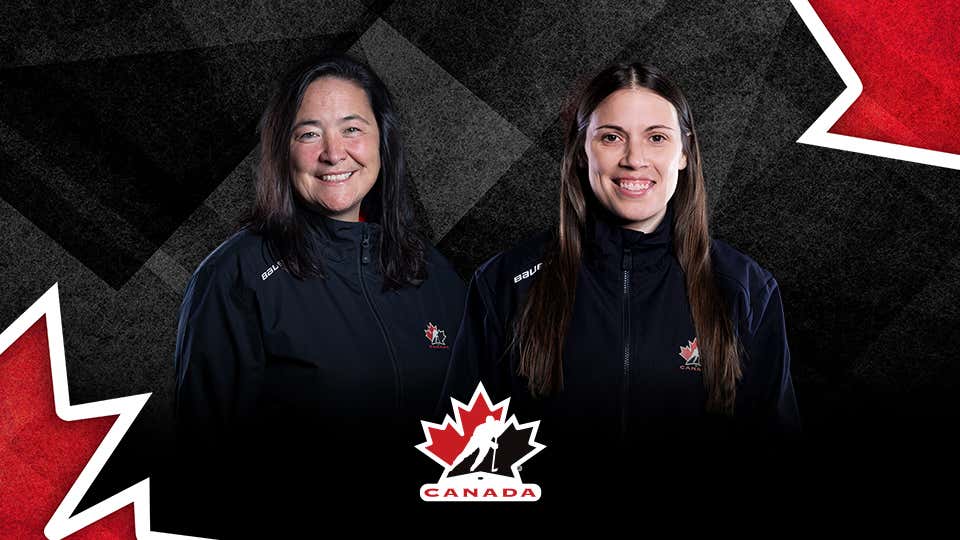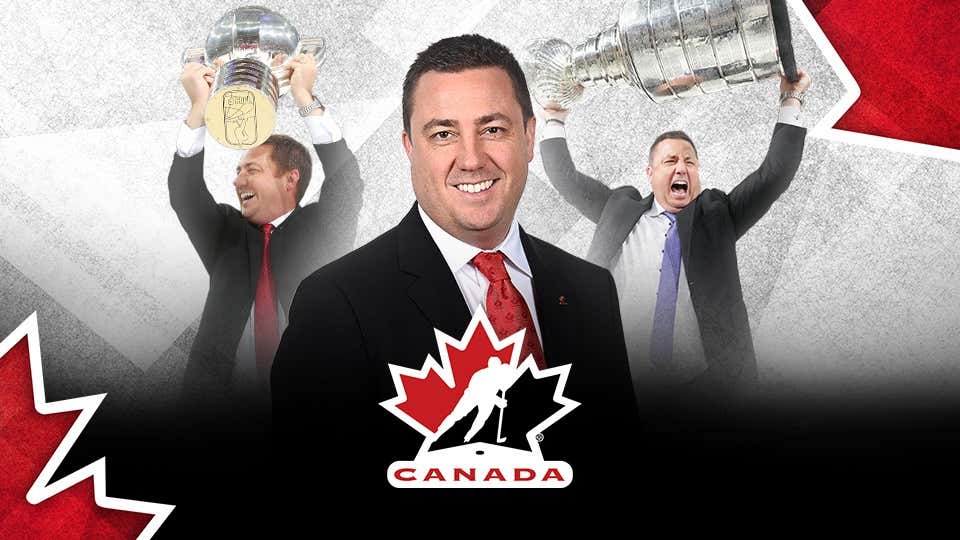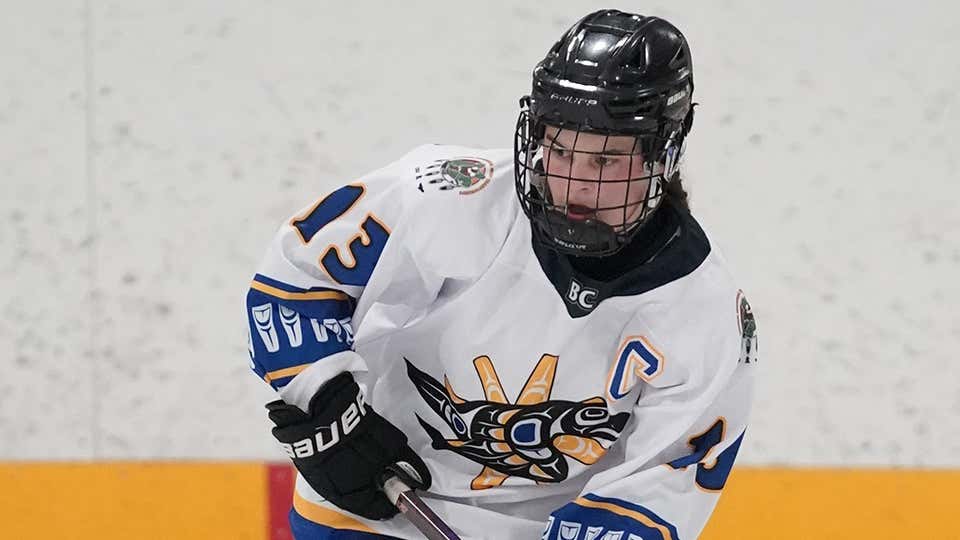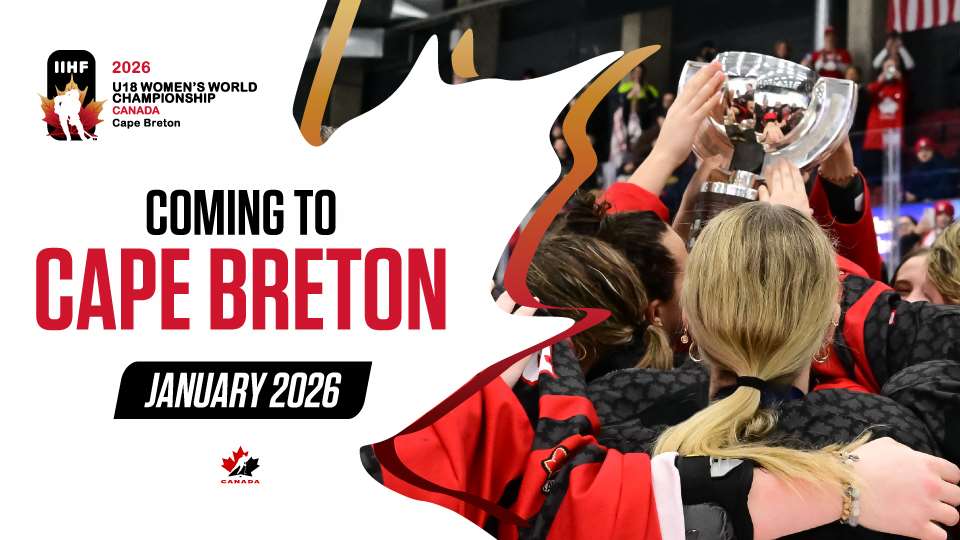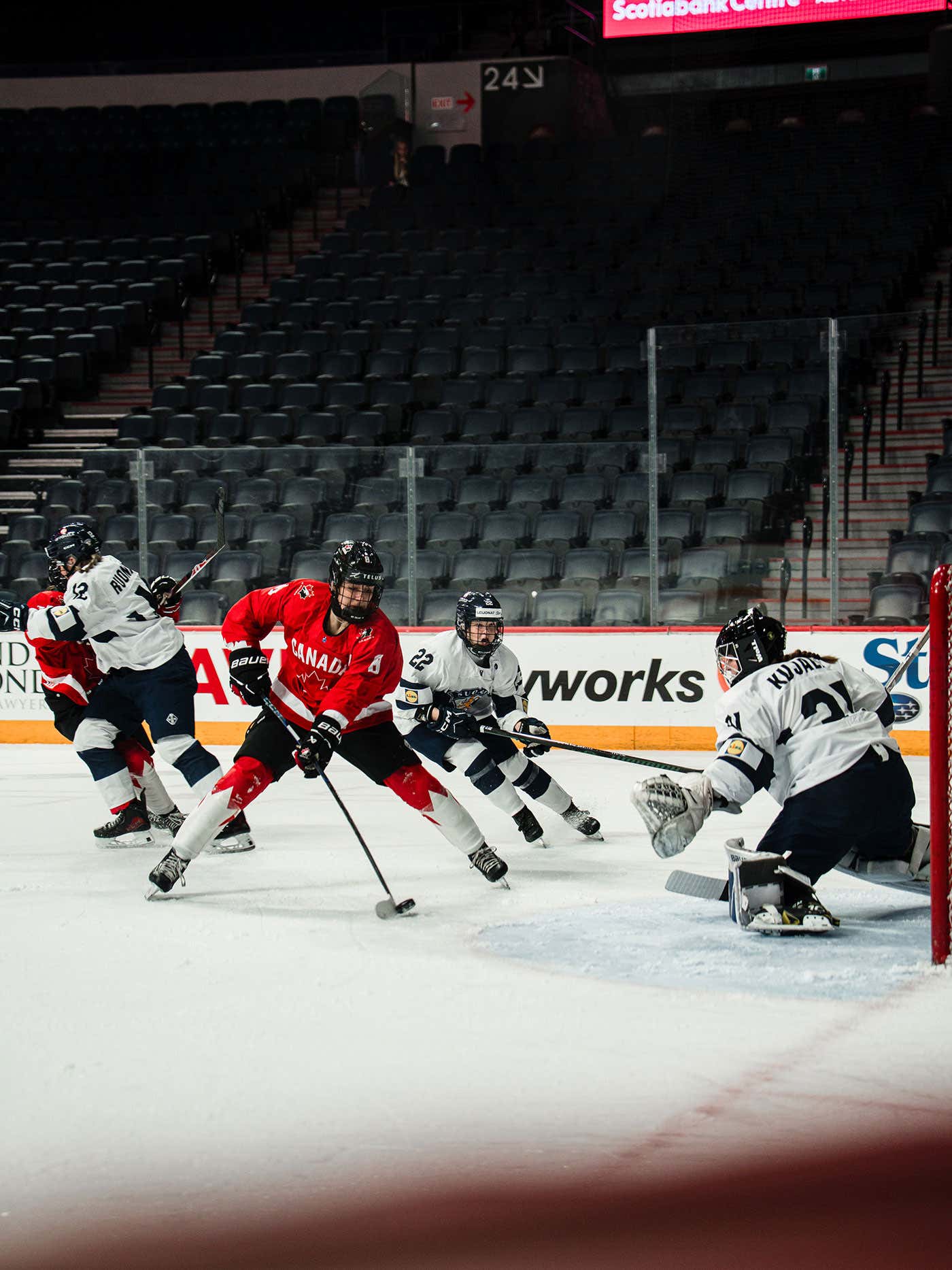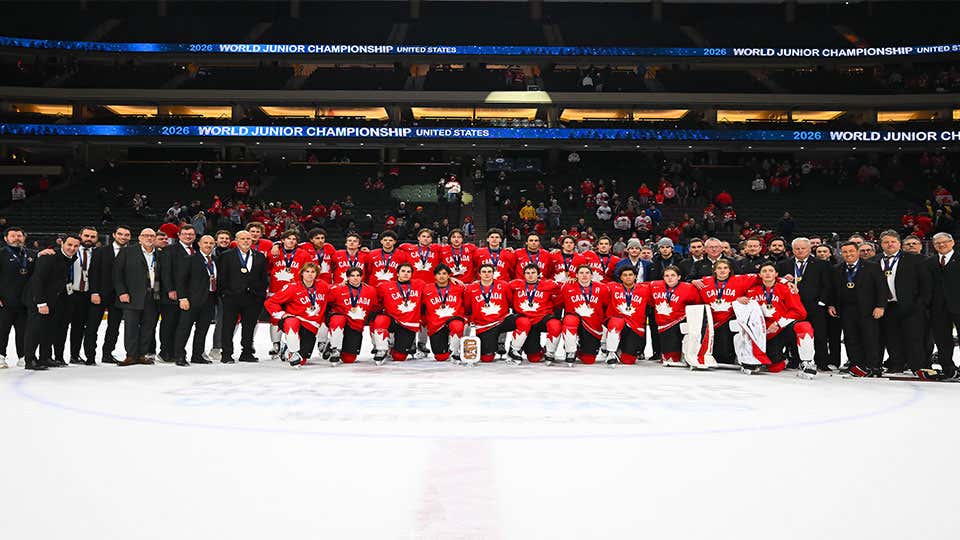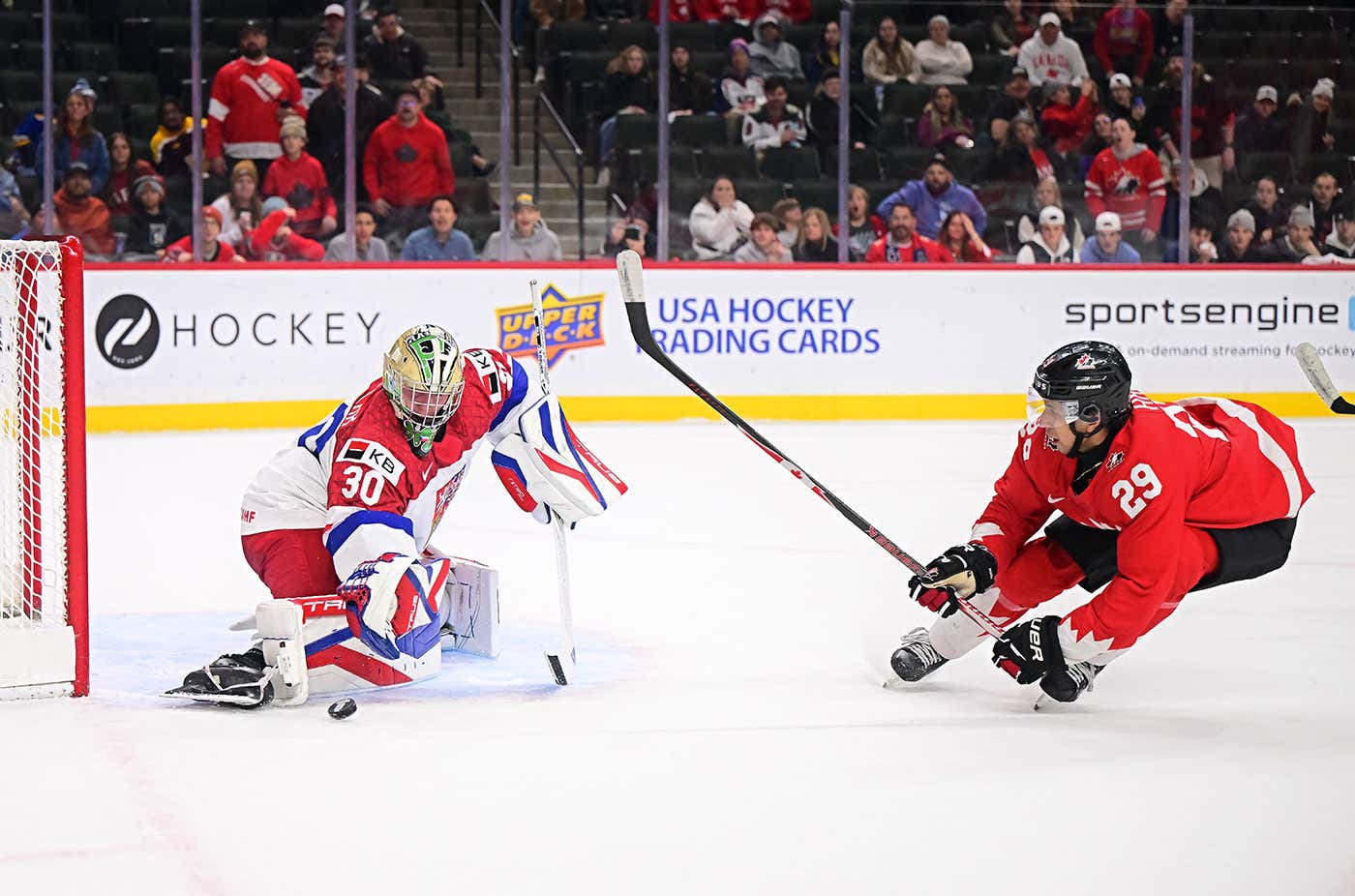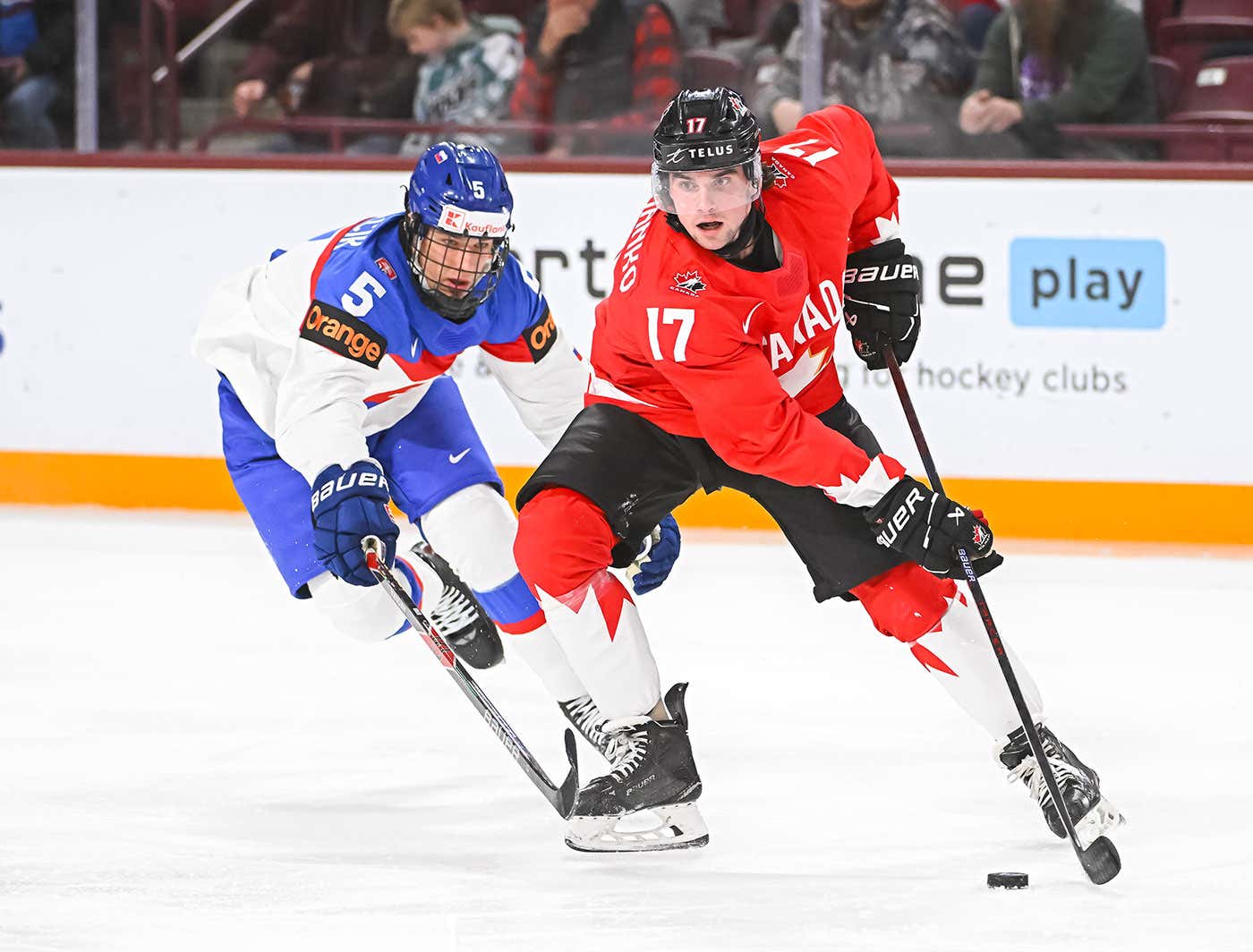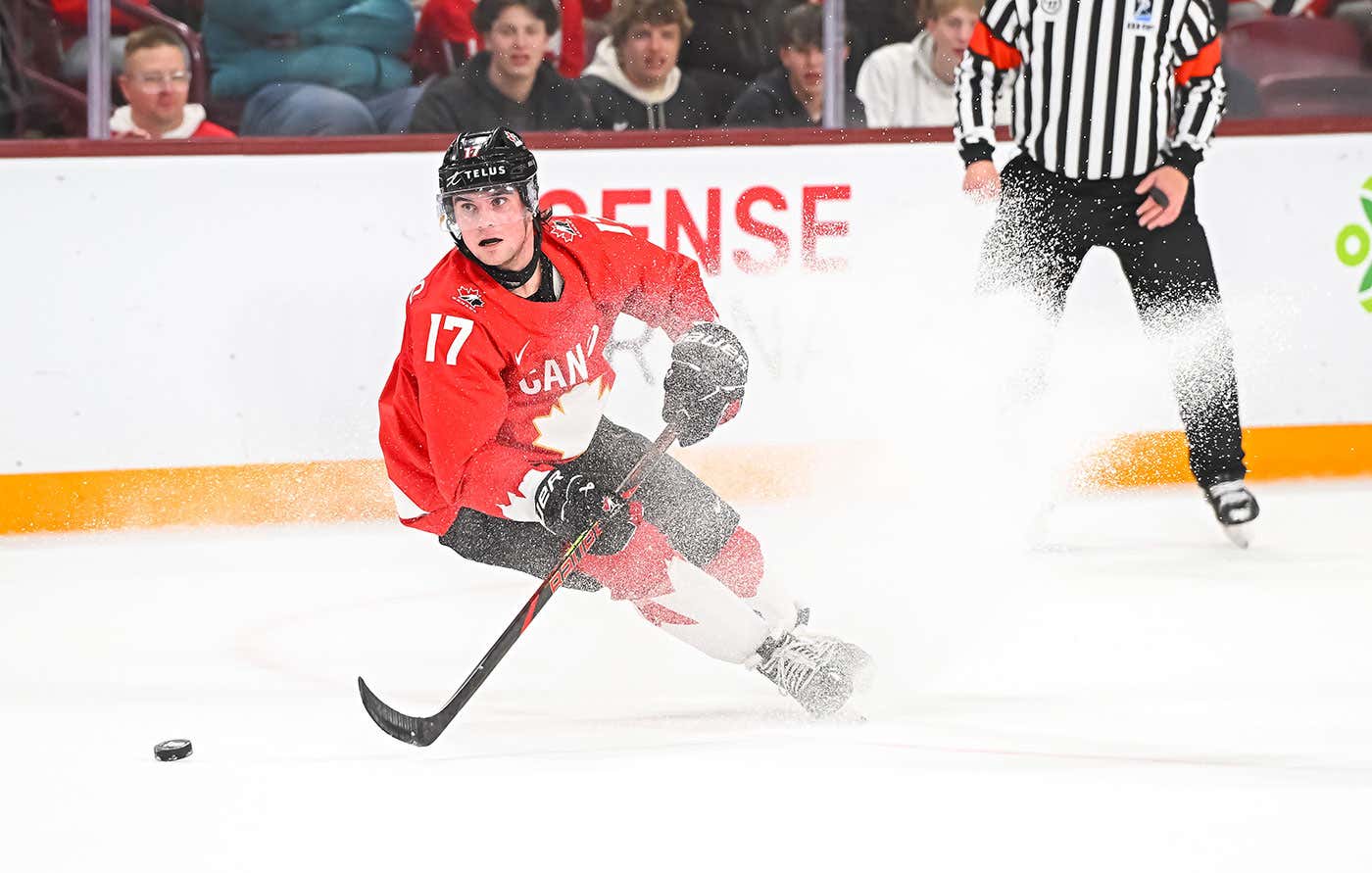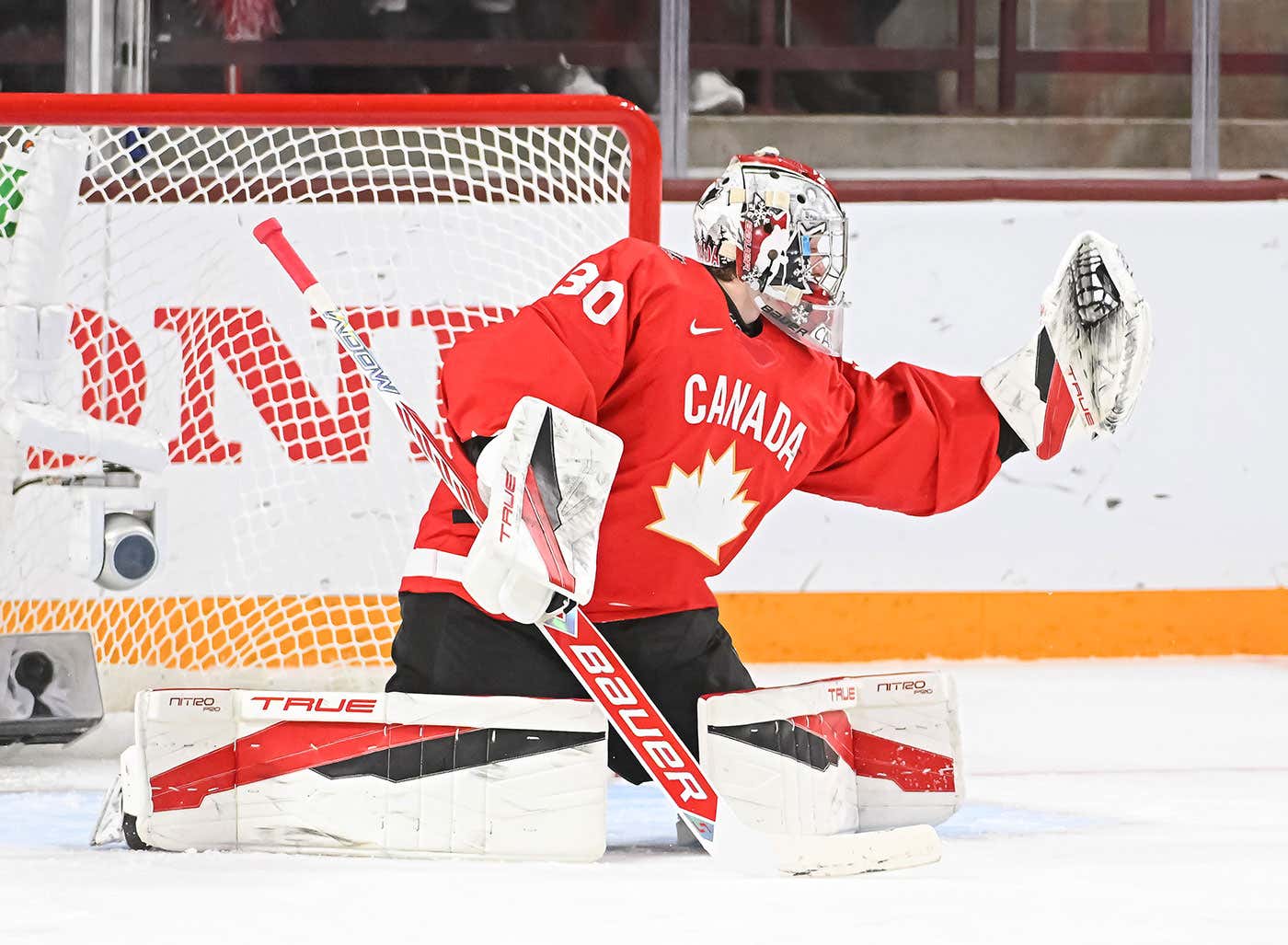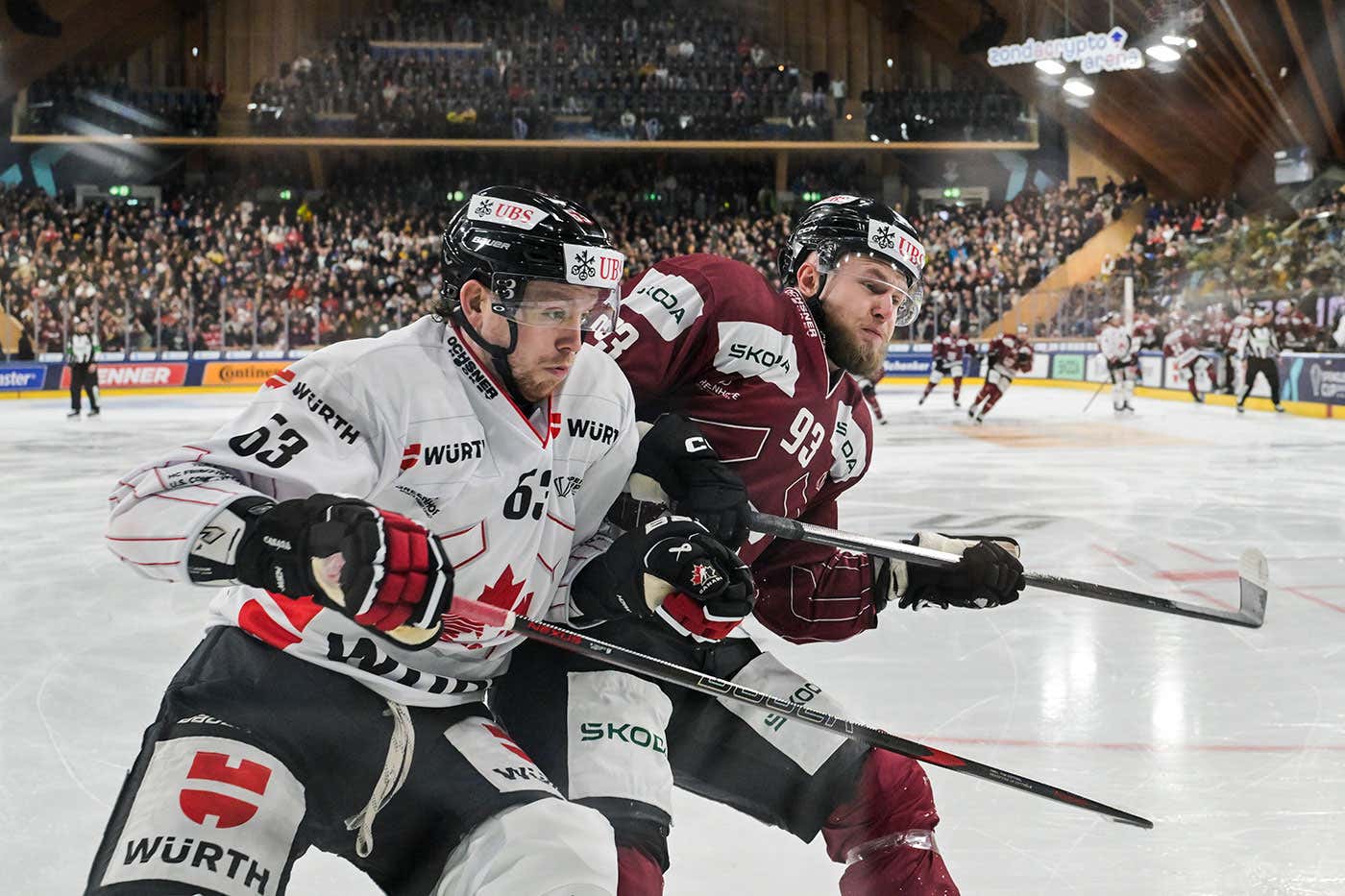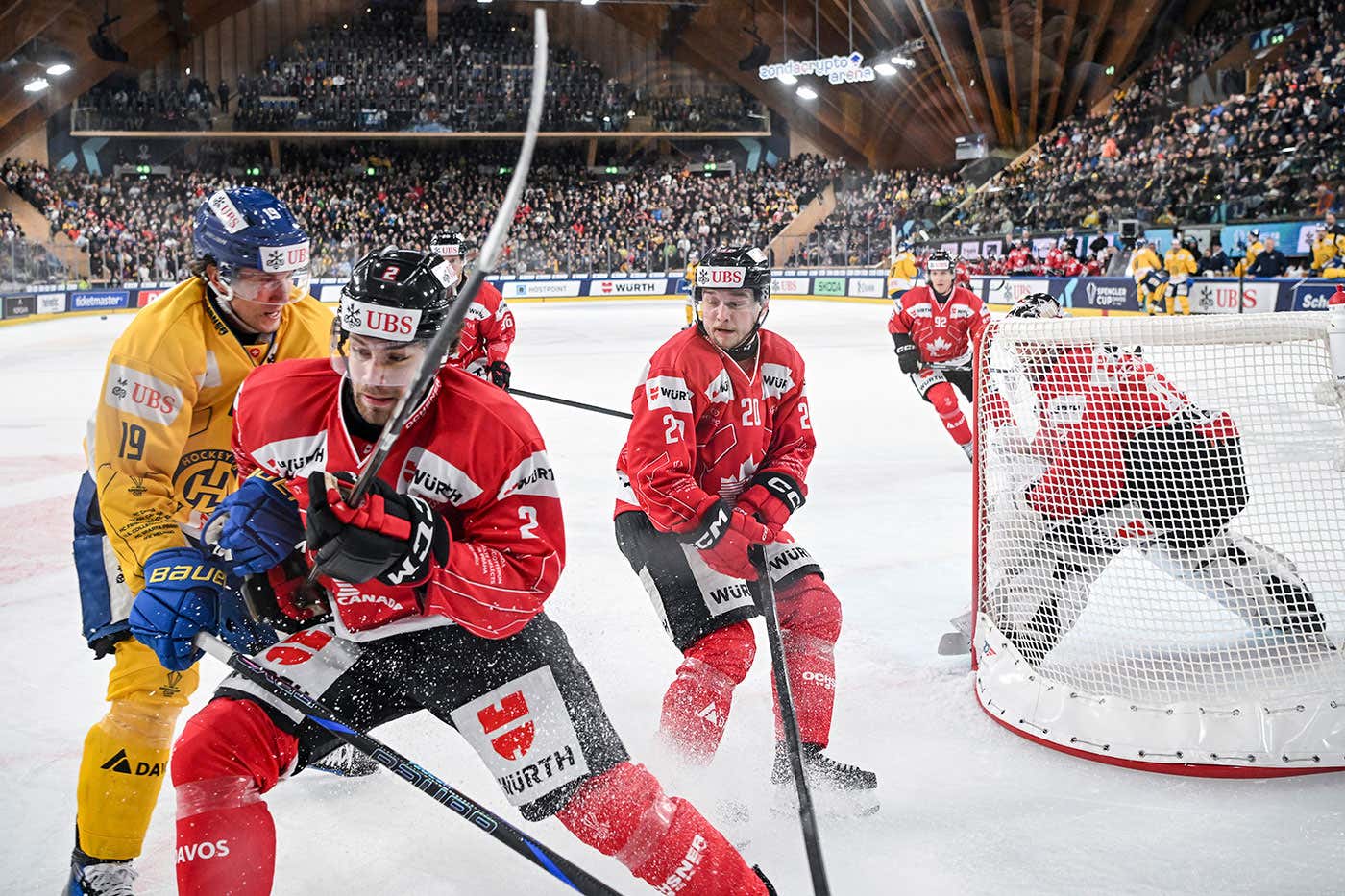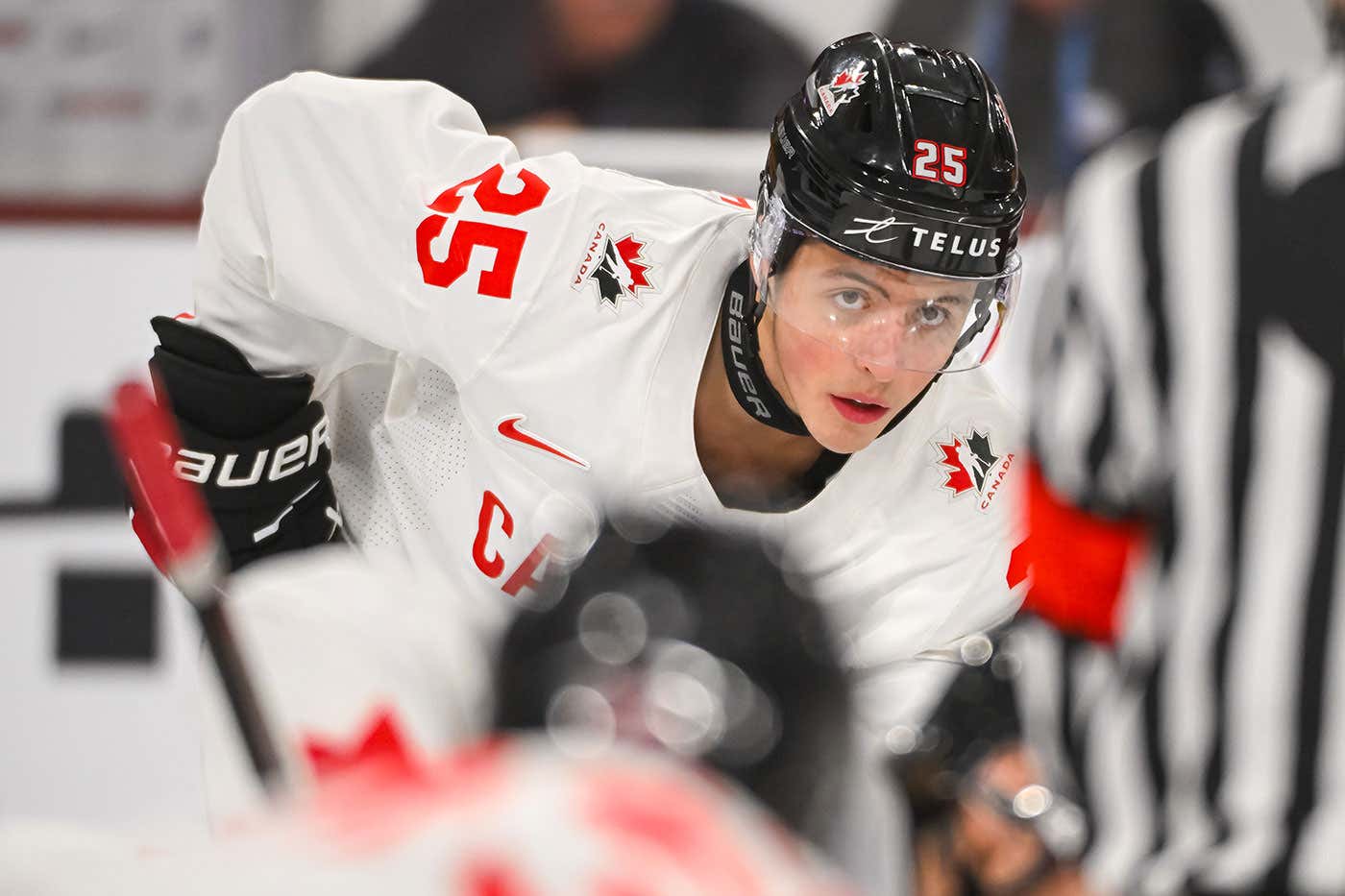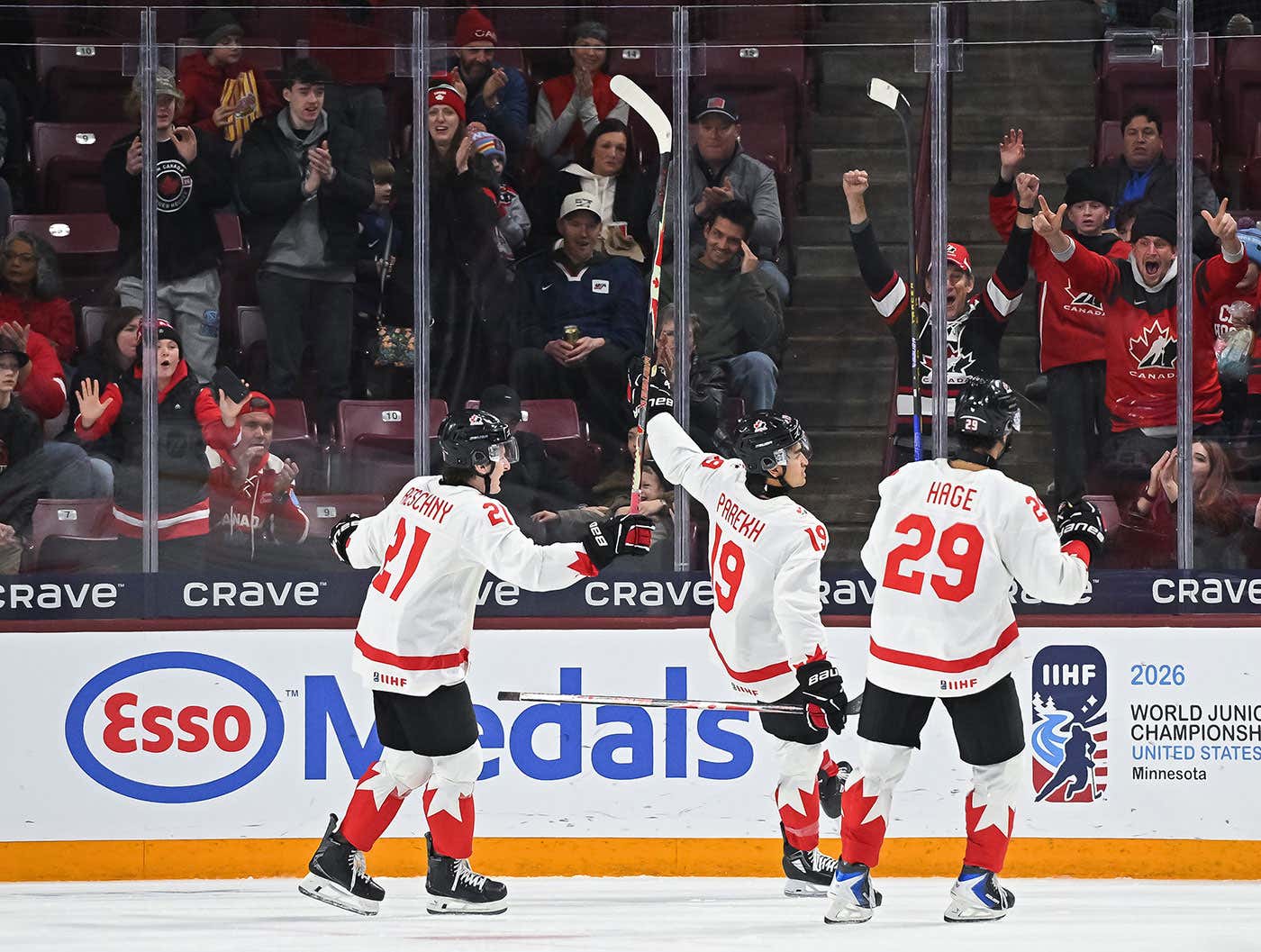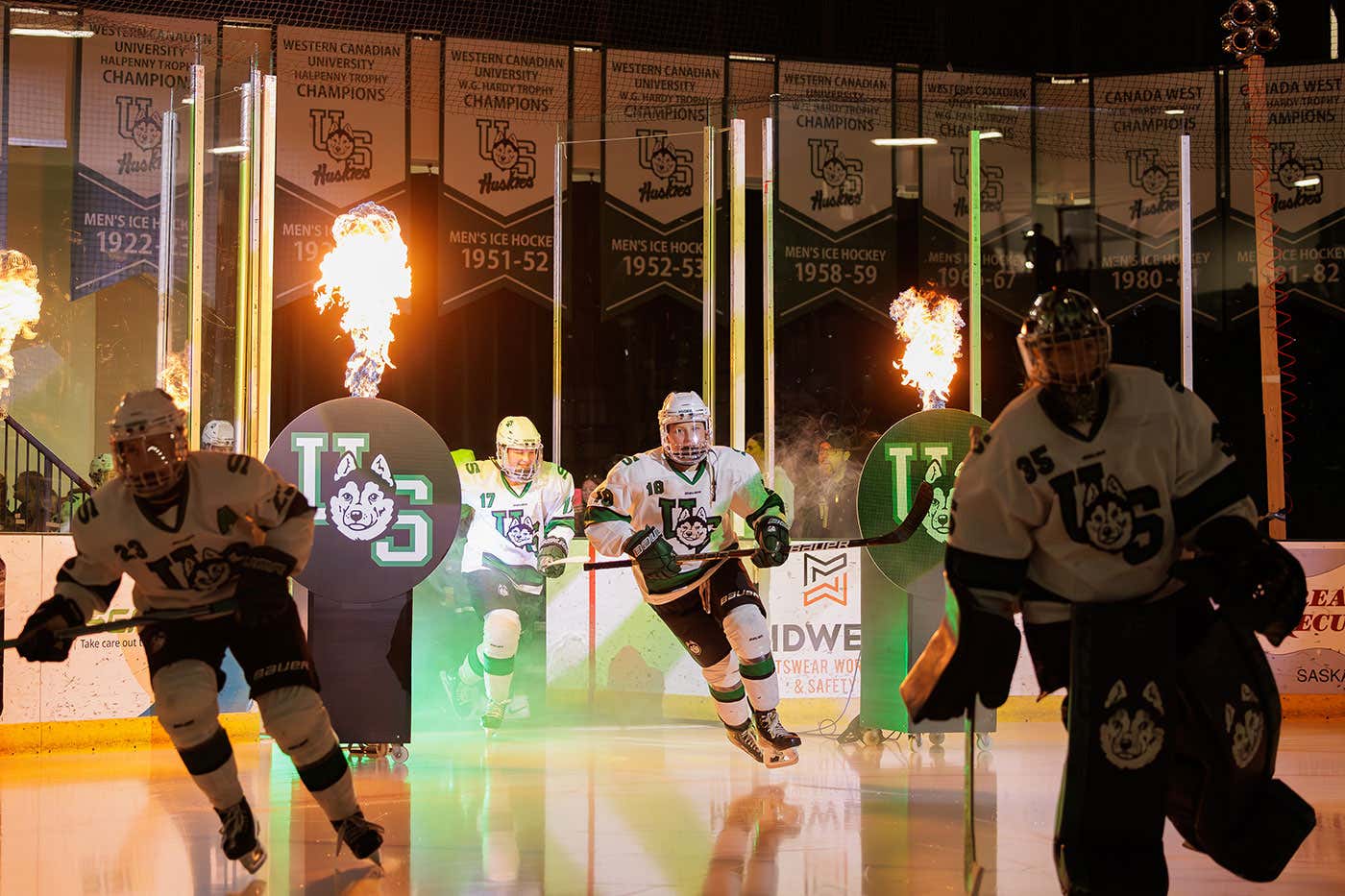As long as I can remember, I've heard and read stories of my ancestry
dating back to the Red River Resistance, including a book written about my
great-grandma’s family living on a reserve in Northern Manitoba. Families
on my dad’s side settled in small Métis towns called St-Malo and
St-Pierre-Jolys.
I’ll admit… after hearing about my ancestors’ experiences, I wasn't sure if
being Indigenous was good or if it was something I should be ashamed of. In
minor hockey, people used to always ask ‘Who is that little native boy on
the ice?’ just because I was playing on a boys’ team and had a long braid.
I didn’t think much of it at the time, until I heard some of the things
people were saying about other Indigenous people in the community, things I
never thought I would hear. Although we spoke regularly in our household
about our Métis heritage, it was difficult to express it outside our walls.
After that, I thought if I didn't expose myself as being Indigenous that I
wouldn't get bullied or hurt. I buried it away and focused on my real
passion—hockey. Every time I stepped on the ice, I wanted to be the best
player so one day I could be a role model for other Indigenous athletes
with similar experiences.
I lived by the motto
“I work hard today to be better for tomorrow.”
Carrying that with me, I was able to make the British Columbia roster as a
double under-ager for the 2023 Canada Winter Games on Prince Edward Island,
and was lucky enough to help Team B.C. win its first-ever gold medal!
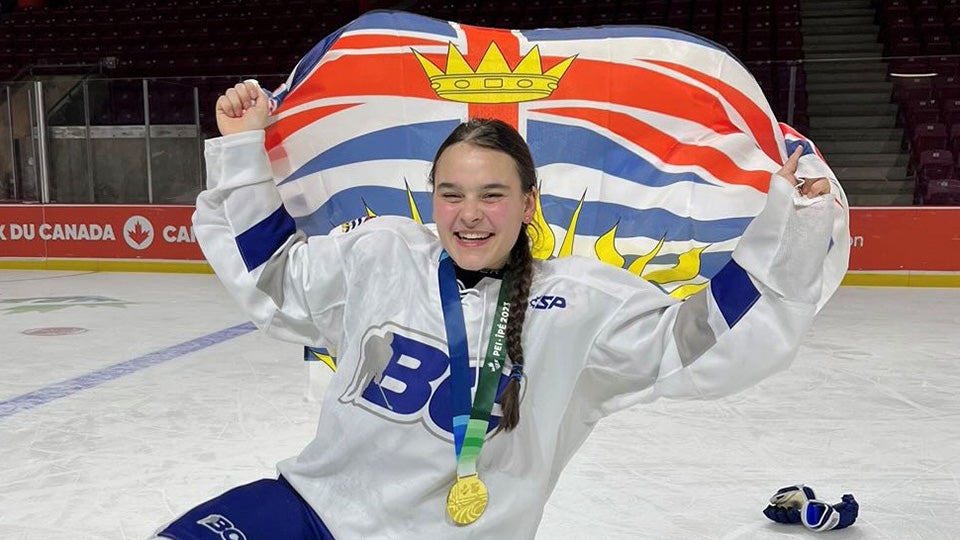
That event was a huge moment in my journey; I believe I made a name for
Indigenous athletes to show that you can play with everyone.
My journey with Team B.C. has continued for the last two seasons, winning a
pair of bronze medals at the U18 Women’s National Championship, getting to
serve as captain at the most recent tournament in New Brunswick and being
named Top Defender.
I have also won two Canadian Sport School Hockey League (CSSHL)
championships with RHA Kelowna in the Female U18 Prep division, broke the
record for most career assists in division history and earned CSSHL
Defensive Player of the Year last season.
Oh, and I lived out a dream by getting to wear the Maple Leaf with Canada’s
National Women’s Under-18 Team and win a gold medal at the 2025 IIHF U18
Women’s World Championship in Finland. How’s that for a platform for
Indigenous athletes!
Through my time with Team B.C., I learned about ISPARC (Indigenous Sports
Physical Activity and Recreation Council), which leads the teams that
represent the province at the National Aboriginal Hockey Championship
(NAHC) every year. In 2023, just a few months after my Canada Games
experience, I made my first NAHC appearance in Winnipeg.
I returned for a second tournament in 2024 in Grande Prairie, winning a
bronze medal, and earned the Premier’s regional and provincial awards for
Indigenous youth excellence in sports.
I made a third trip just a few months ago on home ice in Kamloops, just a
couple hours from where I grew up in Osoyoos, getting the honour of being
captain again and leading Team B.C. to silver, the best finish in program
history.
Those tournaments were amazing experience, both personally and culturally.
I felt accepted by opponents, fans, coaches and teammates. They were so, so
important in my growth as a hockey player and as an Indigenous athlete.
There’s one story from my NAHC years that will stick with me, and I want to
share it. It really drives home why I want to work with the younger
generation (which is funny for me to say being only 18!) to truly embrace
our culture.
One of my best friends, who is Indigenous, would constantly be reminded by
her teammates that she wasn't good enough to play for Team B.C. at the U18
Women’s Nationals. No one cared if she made the ISPARC Team B.C.; to them,
it would never be as good as what they considered the “real Team B.C.”
I never hesitated to remind her how skilled of a player she was. It was—and
still is—very hard for me to understand how her teammates could not only be
so mean, but at the same time talk about Indigenous athletes and the NAHC
tournament as a lower form of competition.
Hearing them say that we aren't good enough hockey players just because we
were Indigenous was something that didn’t sit well for me. It made me
realize that I have to fight for what's right and stop hiding in the
shadows.
I am very proud to say that I am a citizen of the Métis Nation of
British Columbia (MNBC) and that I live on the traditional unceded
territory of the Sylix (Okanagan) Nation!
I made a decision to learn more about being Métis. The MNBC staff was
welcoming and supported me in learning about my culture and other
Indigenous cultures. I was honoured to be sashed by the president of the
MNBC and receive two warrior sashes made for me by Métis Elders.
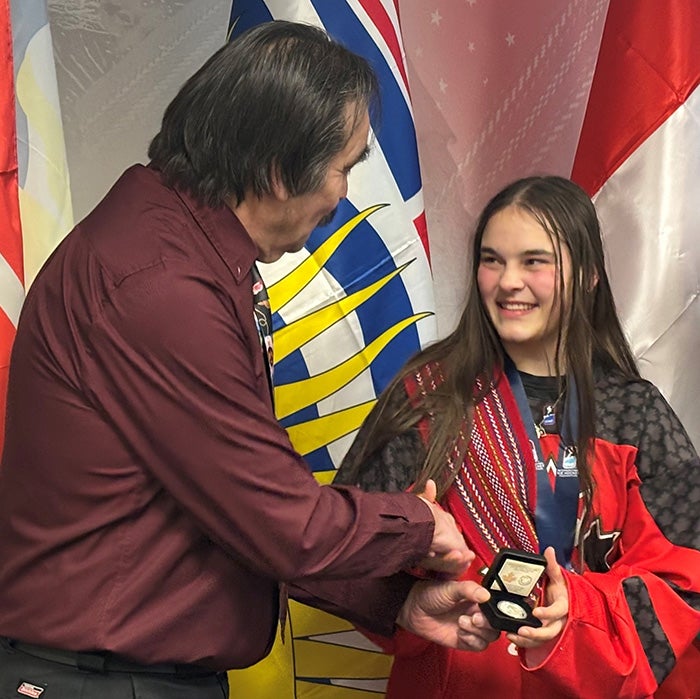
I was invited by the MNBC Board of Directors to speak with government
representatives and talk about the mental, physical and emotional
challenges that Indigenous athletes have to face. I explained how hard it
is to be faced with discrimination just for being Indigenous.
Due to the negative impact, I took a 12-week course with former NHLer Aaron
Volpatti to help with my mental health and confidence. He showed me that if
I envision what I want to focus on and to not let outside voices get to me,
I'll be able to accomplish anything.
This knowledge was very important; I learned that it's okay to speak up and
to fight for what's right. I knew I didn't have to hide who I was anymore
because I had a whole team of people who would back me up and pick me up if
I ever got down. Being a citizen of the MNBC has allowed me to be a role
model for Indigenous athletes, proving that there are no limits if you are
willing to put in the work.
Alongside the highs and lows of being an Indigenous athlete, I faced
another challenge that was out of my control—I have often been overlooked
or underestimated because of my height. (I’m 5-foot-2, in case you’re
wondering.)
No matter what I did, every mistake and every loss was because I was short.
I knew my height would come with challenges, but never did I think a coach
would belittle me because of it. I would be told that I cost the team the
game, implying that it was because I was too short. During my NCAA
recruitment, this coach would always bring up my size as a negative when
speaking to other coaches, rather than focusing on my skills.
I’m short…and I can’t do anything about it! I am so lucky to have been able
to work with two coaches, Venla Hovi and Kris Hogg, who really took me
under their wing and didn't just look past me because of my height.
Venla—a two-time Olympian and Women’s Worlds veteran with Finland—was the
first coach who gave me confidence to use my height as an advantage. She
saw my potential and worked with me to be comfortable being uncomfortable.
She really changed the way I played, for the better. She allowed me to see
my height as a strength and as something people wouldn't be able to stop. I
was so fortunate to have a strong believer like her on my side.
When I made the move from the Okanagan Hockey Academy to RHA Kelowna, Kris
was the coach who encouraged me and supported my growth as a player. He
always put me out there to every single college he could, never once saying
I was too short to play Division I hockey. He also pushed me past my
boundaries on and off the ice, which helped me to break records I wouldn't
have thought possible.
It is with the support of Venla and Kris, along with coaches and trainers
like Mark Fitzgerald, Jim Liebel, Tyler Liebel, Travis Martell, Derek Ruck,
my dad Dean and so many more that I have been able to live my hockey
dreams—representing my province, representing my Indigenous community and
(the craziest of all) representing my country!
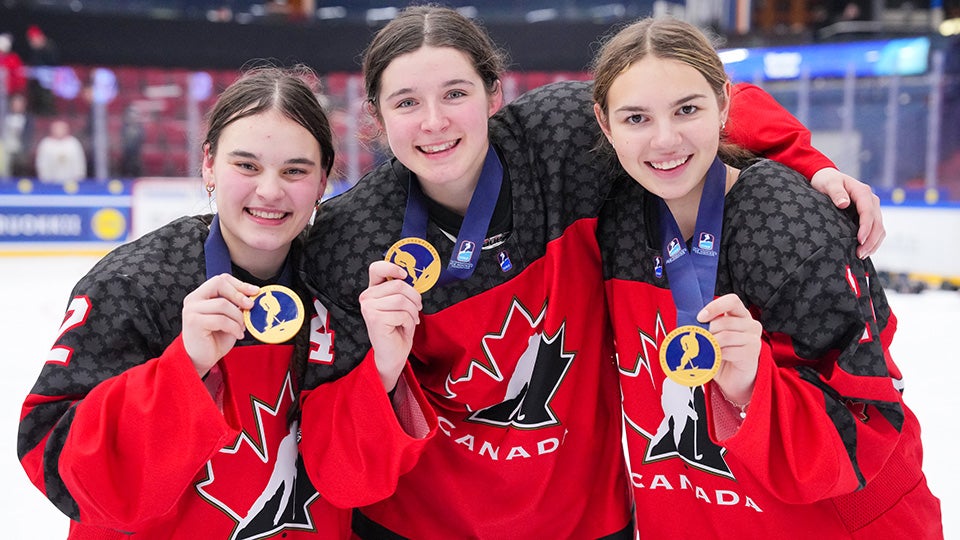
This coming season, I’m proud to have accepted a scholarship to Penn State
University to continue my hockey career.
Through my journey I have realized that no matter what, you have to fight
for what's right and continue to battle against the hard. I am so thankful
for all the opportunities I have had, and I continue to work hard today to
be better for tomorrow so that I can make my dreams to represent Canada at
the Olympics and play in the PWHL a reality.
My hope is that my journey and story will be an inspiration to young
Indigenous athletes, showing them that any boundary is breakable with the
right mindset.



















